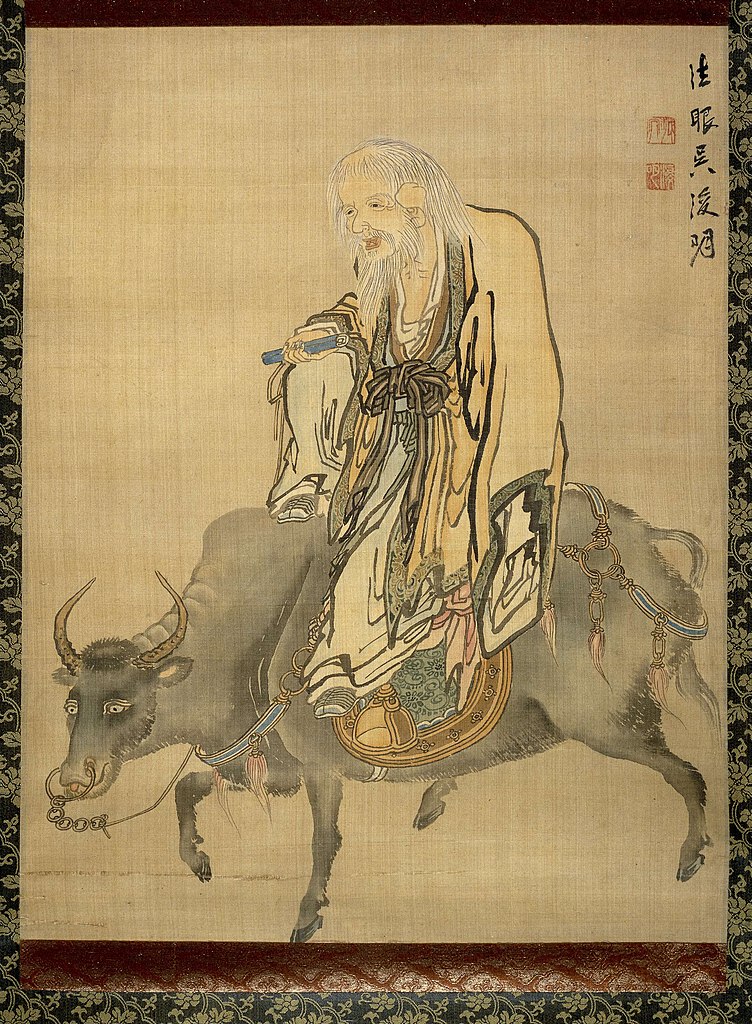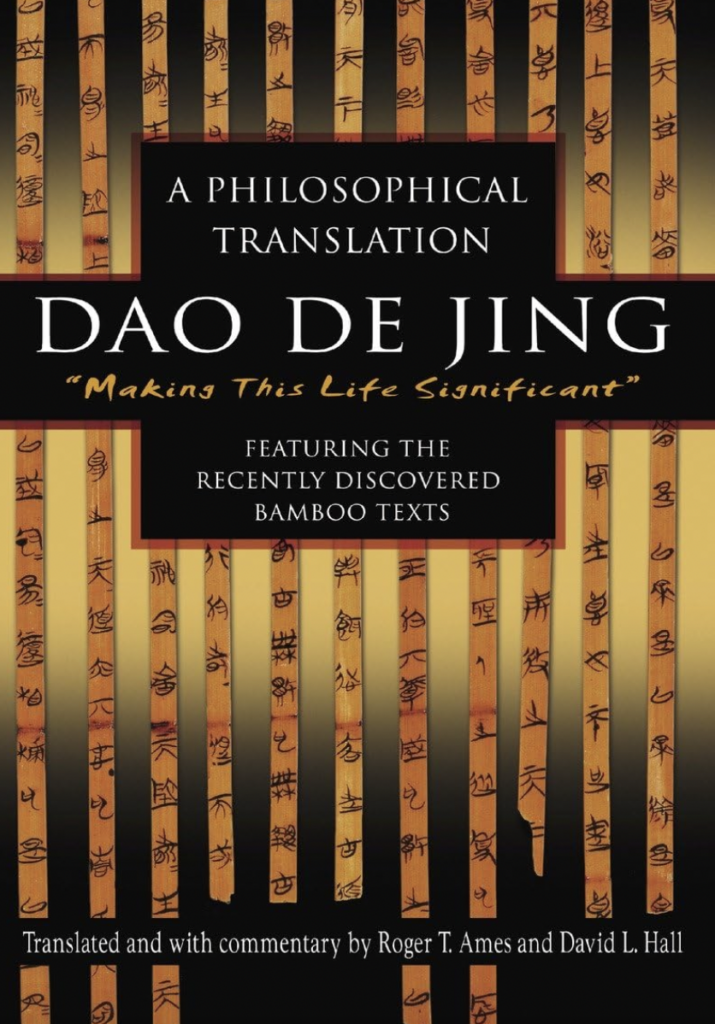
By not elevating the worthy, you bring it about that people will not compete.
By not valuing goods that are hard to obtain, you bring it about that people will not act like thieves.
By not displaying the desirable you bring it about that people will not be confused.
Therefore, in the government of the Sage:
He empties their minds,
And fills their bellies.
Weakens their ambition,
And strengthens their bones.
He constantly causes the people to be without knowledge and without desires.
If he can bring it about that those with knowledge simply do not dare to act,
Then there is nothing that will not be in order.
(Translation by Robert Henricks)
At first sight, this chapter is too reminiscent of the current state of Western culture for it not to cause us to raise an eyebrow when reading it. Don’t our governments also seek to “empty our minds” by dumbing down our education system, fill our bellies with fatty and sugary highly processed foodstuff, put obstacles in the way of students from deprived backgrounds hoping to improve their social status, as well as curb protests through disproportionate fines and prison sentences?
We could point out that the sages whose teachings were compiled in the Tao Te Ching all belonged to the aristocratic class, since only members of that class could write, and compete for posts in the administration of the state, and conclude that illiterate peasants were beyond their reach, and had to be manipulated into abstaining from rebellion so that they do not undermine the sheer ability of their country to fight off the many enemies that showed up at its borders.
I do feel, however, that the insights of these sages went deeper than this and concerned the root-cause of “suffering” or, say, ongoing “dissatisfaction,” as was the case for the Buddha when he encapsulated his teachings in the Four Noble Truths. And, also in agreement with the Buddha, the issue for them was “desires” – the Buddha said “craving.”
In “A Tale of Two Commentaries,’ Alan Chan writes: “In the final analysis the ills of humanity can be traced to the problem of desires.“ Desires prevent us from perceiving the naturalness of the Tao (Way) in all its subtlety. This was made clear from the very first chapter of the Tao Te Ching: “Those without desires, by this means will perceive its subtlety. Those constantly with desires, by this means will see only that which they yearn for and seek.” Chan goes on to explain: “In government, the Lao-tzu says, it is important that ‘the people be kept constantly without knowledge and without desires. Not to be misconstrued as a kind of political technique designed to manipulate or coerce, this means that they be allowed ‘to safeguard their true nature … The Lao-tzu more strongly asserts, ‘Those who were good at working the Way in ancient times did not try to make the people smart but to keep them dumb (chapter 65)’.” Chan continues: “‘Smart’, in this context, must be understood in the sense of having ‘many cunning schemes and clever skills’, which corrupt natural simplicity; the word ‘dumb’ on the other hand, ‘means not having knowledge and guarding their true nature, which is to say to follow what is naturally so’.” Evidence of this is that “Government,” that is, the ruler himself, “too, must in the final analysis abide by naturalness and nonaction.” This use of the word “smart” in the sense of “cunning schemes” throws a revealing light on the recent move by some bookshops to set up a new section called “smart thinking” where recent books that used to be in the philosophy, politics and economy sections are now on display. “Smart” is now a selling point, who cares about naturalness in today’s world? Nature has become an inconvenient source of frustrations!
Nonaction
Chan, then further explains what the Tao Te Ching understands as “nonaction”: “To be free from the tyranny of desires, there is no better way than to abide by what the Lao-tzu has termed ‘nonaction’ (wu wei).” First, it is said to be “the diminishing of desires.” In Ho-shang-kung’s commentary it is defined in terms of vital energy (ch’i). “It is characterized by both ‘emptiness’ and ‘fullness’, conceived concretely in terms of the operation of vital energy. The concept of ‘emptiness’ best describes nonaction, in that energy in its rarefied state naturally fills us empty space. The ‘One’, Ho-shang-kung writes, ‘shuns where it is filled and dwells in the empty (chapter 35). Yet, when infused with energy, what was ‘empty’ becomes ‘full’. Attention, in other words, must be shifted from obtaining the ‘One’ to safeguarding its presence. As the commentary continues, ‘If one finds joy and delights in Tao, the One will stay put’; otherwise, it will move on like a ‘passing guest’. This, in general terms, is what Ho-shang-kung means by ‘embracing the One’ (chapters 3, 10), ‘concentrating on the One (chapter 55) and more typically ‘guarding the One’ (chapters 20, 22, 27, 81).”
People would naturally responds to the ruler. Or would they?
In chapter 23, the Tao Te Ching argues that, should the government be based on “the ruler’s own ‘emptiness’, … just as sounds of the same tone resonate with each other, the people would ‘naturally’ respond to the ruler. Reflecting the principle of ‘correspondence’ common in Han thinking, it is assumed that nonaction from ‘above’ initiates a process of transformation that diminishes desires ‘below, (chapters 3, 37, 57).” Chan, however, is sceptical about this assertion, and writes: “Yet how persuasive is this kind of theory in a world beset with violence at every turn? … Interventionist policies of both the Legalist and Confucian variety only trouble the people and exhaust precious resources (chapter 60).” It looks like some of the authors of the Tao Te Ching did not feel it safe to rely on such “correspondance” since they prescribed the rather drastic measures prescribed in this chapter to curb the rebellion of common folk. Here the Tao Te Ching is aiming at the Confucian policies which claim to be based on the Tao, but also have an “emphasis on benevolence and proper conduct” which amounts to “imposing arbitrary distinctions and artificial standards. In particular, the kind of ritual action and rules of propriety so central to the Confucian enterprise is taken to task for ‘lacking in substance’, which amounts to a recipe for hypocrisy.” In particular, Chan tells us, the Tao Te Ching “rejects heavy taxation (chapter 75), reliance on harsh laws and stiff punishments (chapter 74) and above all war (chapters 30, 31, 68).”
Nonaction does not exclude decisive leadership and timely mediation
The Tao Te Ching’s emphasis on naturalness and non-action cannot, however, be seen as a blind faith in spontaneity. Chan writes: “Just as naturalness in self-cultivation does not mean leaving the body unguarded, nonaction in government cannot be without decisive leadership and timely mediation. The use of strong medicine does not alter the basic premise. Since human beings are the ‘sacred things’ of the world, the sanctity of life must remain inviolate. Still, Ho-shang-kung cannot ignore the competing claims of ethical and political life. Confronted with the power of desires, concrete steps must be taken to prevent the individual or society as a whole from losing the ‘One’. Precisely because the sanctity of life must be protected, timely and forceful measures are required of the ruler.
What about the possibility of abuse by the ruler? Sages are rare.
Unfortunately, then as now, rulers are often part of the problem rather than part of the solution. Chan can only bring up what is ideally the case in Taoism: “Ideally, the ruler should submit to the Taoist sage, who is no ordinary mortal but carries an exceptionally rich energy-endowment which renders him sage.”And he adds this rather surprising statement:“One is either born a sage or not at all. Indeed, the ‘virtue’ of the sage is so great that ‘not even the son of heaven could make him a servant’ (chapter 56). Embodying true ‘emptiness’, utterly independent and devoid of self-interest, in theory the sage alone could be entrusted with the government of the empire.” What about self-cultivation as a path to attain sagehood? If to be a sage you need to be born a sage, there will be “very few sages.” Which the Tao Te Ching agrees is the case. Chan says: “Sages, however, are rare.” Fortunately, their teachings are recorded in the classics and explained by expert commentators.” So while it is the function of commentators to emphasise the need for the ruler to “abide by emptiness” and “govern by nonaction,” it is also necessary to curb what is “troublesome” because if one loses “the One,” which for Ho-shang-kung amounts to disturbing the flow of ch’i, “‘a powerful “turbulence’ will arise and with it a reign of violence and disorder. If the ‘One’ is secured, however, nonaction finds expression in ‘pure’ spontaneity, which not only ensures the well-being of the individual but proves an unfailing guide in the management of complexities.”

In “A Philosophical Translation – Dao De Jing – Making this Life Significant,” Roger Ames and David Hall provide an interpretation of this chapter that could be useful if applied in today’s socio-political conditions.
In the commentary on chapter 3, they write:
“In attempting to govern the people, acting assertively to promote particular value judgments over others can be divisive and self-defeating. Such conduct in favoring one thing over another encourages a contentiousness among the people that undermines rather than fosters community. Better to be broadly inclusive of different talents and contributions, and to strive to appreciate each thing on its own terms, with the single proviso that coercion is impoverishing.
“Under the tutelage of sagacious rule, there is a tacit celebration of the bravery, patience, and kindliness of the ordinary person. There is a tolerance of difference and diversity that precludes any heavy-handed exercise of political constraints. In abjuring any appeal to political idealisms that are so often invoked by their advocates to justify the worst kinds of exclusion and coercion, those responsible for the flourishing of community simply allow it in all of its complexity to establish and sustain its own equilibrium. Rather than foisting an agenda on the community, effective administrators make sure that basic needs such as food and health are provided for, and then sit back to allow the character of the community to emerge synergistically out of the associated living of the people.”
Sources:
Robert G Henricks – Lao-Tzu, Te-Tao Ching
Alan K L Chan – “A Tale of Two Commentaries: Ho-shang-kung and Wang Pi on the Lao-tzu in Lao-tzu” and the Tao-Te-Ching, ed. Livia Kohn and Michael Lafargue
Roger T Ames and David L Hall – A Philosophical Translation – Dao De Jing – Making this Life Significant”
